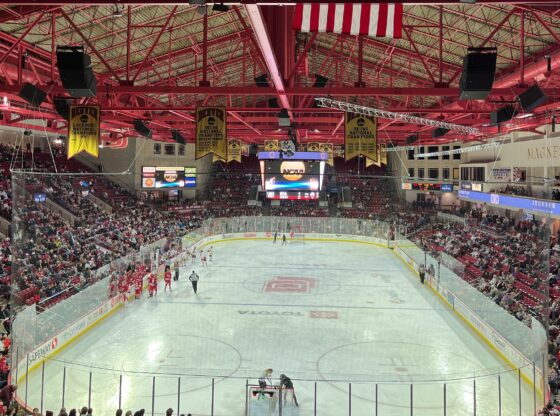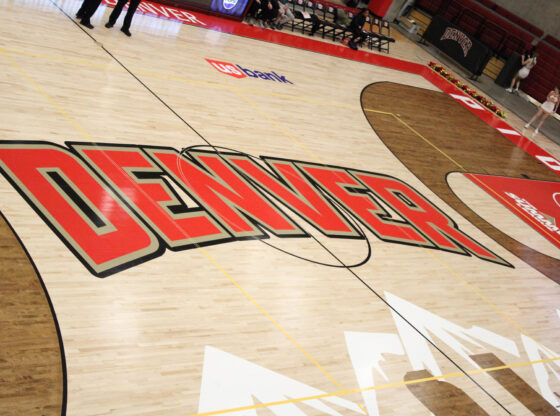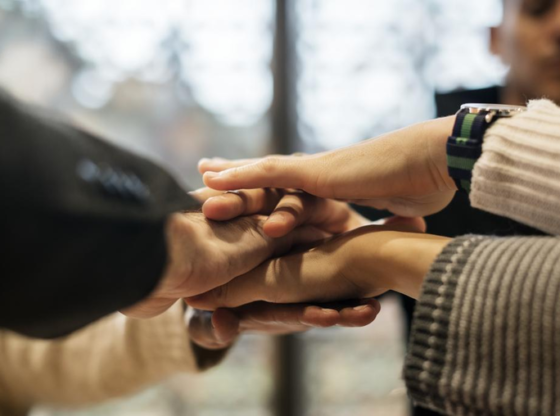Dear Chancellor Haefner,
This collective letter from Indigenous faculty at the University of Denver is in regard to your Oct. 21, 2020 reply to student demands from the Native Student Alliance (NSA) and Righteous Anger! Healing Resistance! (RAHR).
We write this letter from the traditional homelands of the Nunt’zi (Ute), Tsitsista (Cheyenne) and Hinonoeino (Arapaho) Nations currently occupied by DU. We write this letter in solidarity with the descendants of the Sand Creek Massacre, the historic tribes of what is now Colorado, and DU Native students and their allies.
As Indigenous academics in a myriad of disciplines contributing to the intellectual community of DU, our academic freedom gives us the privilege to hold our institution accountable for the unintended and structural impacts of settler colonialism that continue to echo through our shared history.
We hope to amplify student demands, and urge that you reconsider the positions stated in your response to student activists on Oct. 21. As a collective, we trust your intentions to both model and meet the goals of the university. Your response, however, does not represent the engagement necessary to maintain an intellectually vibrant campus or a challenging and liberating learning environment. Aspects of the all-campus communication failed to critically engage the lived experience and inequitable power dynamics of DU’s current campus environment, history and futurity.
We offer two specific examples to further amplify student demands and illustrate the inequitable power dynamics of DU’s decision-making.
1. Redefining the “Pioneer” Replicates Settler Logics of Indigenous Erasure
In your Oct. 21 letter, you stated, “The University of Denver is committed to… fully educating our community on why some in our community reject it and why some honor it. In proceeding in this way, we aim to reclaim and define our moniker in ways that embody our current values and commitments.”
Such logic creates a false equivalency between an aggrieved population—communities and individuals who continue to prevail against structural and individual racism and colonial violence—and those who would face no such structural inequities should their beloved 100-year old “moniker” evolve to a new symbol.
In 1920, DU evolved from the “Fighting Parsons” to “pioneer” without losing an essential commitment to excellence and thoughtful intellectual engagement. In 2020, those advocates for the “pioneer” moniker would face no structural or historic inequities should the name evolve. Thus, these contingents within the DU community do not hold equal stakes in the removal of this symbol, and to assume that there are ‘very fine’ arguments on both sides of this issue does not bear scrutiny when we acknowledge our shared context of indigenous dispossession in the pioneering history of our nation and this state.
Further, although it might be a beautiful world if we could erase the violent and racist meanings associated with say, the “Ku Klux Klan,” “Nazis,” the “Rebels” or “slave masters,” that is not how language or linguistic symbols work in lived reality. To suggest that we could separate the violent racism associated with the acronym “KKK” or the term “slave masters” is anathema. It is tragically and horrifically part of our shared history of anti-Black racism. We cannot wish it away because we want instead to associate those names with how KKK members organized around their beliefs or how slave masters implemented an efficient system to extract labor.
Finally, all of U.S. history—from the earliest European settlements to today—directly connects to Indigenous dispossession. Any era or dynamic that relates to the use of U.S. territories to bolster national power requires us to grapple with the fact that the aboriginal claim to that territory was wrested, often violently, from Indigenous peoples. Thus, attempts to redefine the word “pioneer” and disregard the associations of that term with the violent displacement of Indigenous communities unintentionally replicates Indigenous erasure.
2. Ethical Tensions of Welcoming Native Students to Inequitable Campus Spaces
Increased scholarship funds for Native students, when framed by a campus climate that reinscribes Indigenous erasure, becomes ethically precarious. Particularly if our institution will expect Native students to contribute unpaid intellectual and emotional labor to educate their peers and faculty on the valences of the term “pioneer” and the history of John Evans and the Sand Creek Massacre.
Should our institution bring more Native students to campus and ask them to continue to lead consciousness-raising activities for a student body and institution that will ignore or resist their efforts? What are we teaching Native students in establishing such a power structure? What are we teaching non-Native students?
We should praise and learn from the intentionality and thoroughness with which Native students and allies crafted their message. Their anti-oppressive and culturally-grounded leadership model garnered support and respect from many areas of the university, as well as larger Denver Indigenous communities. Instead, our institution dismissed and trivialized their actions as radical and disruptive.
Alumni blogs have reproduced their images without permission and provided a forum for anonymous commenters to call them “divisive,” “pointless,” “the perpetually unhappy,” “seditious,” “stupid” and whining. These nameless commentators have even called for you to “clean House [sic] & reimagine a university that looks as good on the inside as the campus looks from the outside” by removing faculty and administrators who concur with RAHR actions. These are the community members empowered and confirmed by your Oct. 21 communication.
Given this most recent example of how DU disregards Indigenous student voices, how ethical would it be to bring in more Native students and teach them that regardless of the rigor of their arguments and depth of their community engagement, their analysis and activism is muted by the economic power of large and nameless donors?
In conclusion, we were proud to stand with Native students and their allies in RAHR during the Sept. 25 protest. We applaud DU students for their criticality and intellectual rigor as they challenge the university’s reinscription of inequity and colonialism. We see DU Native students and their allies meeting a key part of our institutional mission, to “integrate and apply knowledge from across the disciplines and imagine new possibilities for themselves, their communities and the world.”
And we encourage our peer faculty, administrators, and institutional leadership to learn from their model and re-engage on this issue in ways that do not reproduce the inequitable power dynamics that none of us wish to perpetuate.
Sincerely,
Chris A. Nelson, Ph.D., K’awaika/Dine, Assistant Professor, Higher Education Department, Morgridge College of Education
Angela Parker, Ph.D., Mandan, Hidatsa, and Cree, Assistant Professor, Department of History, CAHSS
Ramona Beltran, Ph.D., Xicana (Yaqui), Associate Professor, Graduate School of Social Work, Interim Director, Interdisciplinary Research Institute for the Study Of (in)Equality
Sophia N. Cisneros, Ph.D, Confederated Tribes of Coos, Lower Umpqua and Siuslaw Indians, Assistant Teaching Professor, Department of Physics & Astronomy, Natural Sciences & Mathematics
Janelle Doughty, M.S.W., Southern Ute/Dine, Associate Professor of the Practice of Social Work, Four Corners Program Director, Graduate School of Social Work
Kelly Fayard, Ph.D. Poarch Band of Creek Indians, Assistant Professor, Department of Anthropology, CAHSS
Nancy M. Lucero, Ph.D., Mississippi Choctaw, Research Associate Professor, Graduate School of Social Work; PI and co-Director, Child Welfare Capacity Building Center for Tribes
Billy J. Stratton, Ph.D., Associate Professor Department of English and Literary Arts, CAHSS
Miriam Valdovinos, Ph.D., Chicana/P’urhepecha, Assistant Professor, Graduate School of Social Work GSSW
Robert K Whitman, Ph.D., Navajo, Teaching Professor, Ritchie School of Engineering & Computer Science, Department of Electrical & Computer Engineering










